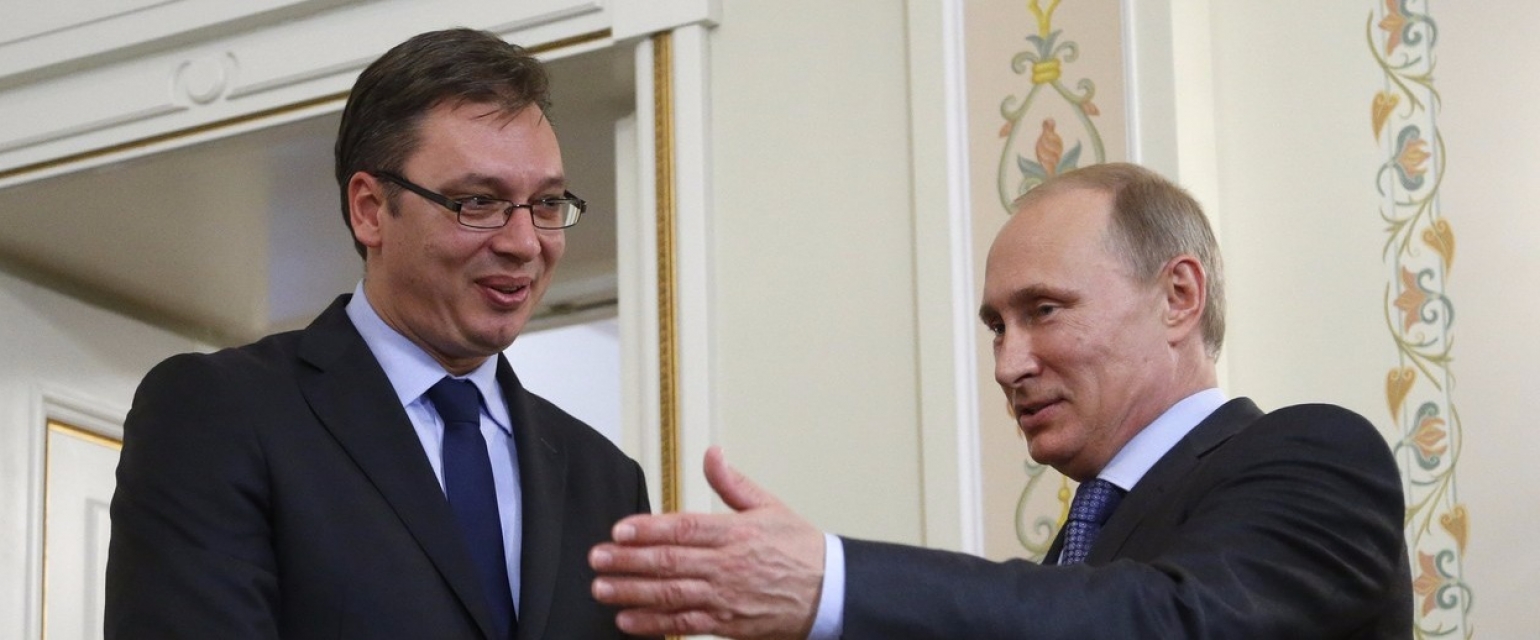

In addition to Russian military airstrikes, Syrian President Assad’s visit to Moscow and the continuing Normandy talks over Ukraine dominated the Russian foreign policy agenda in October. October marked the first month of the Russian airstrikes in Syria against terrorist targets and also saw positive developments in the diplomatic process around Ukraine and Syria. Given these two ongoing international issues, some other important foreign policy events have been overshadowed.
We ranked the top 10 Russian foreign policy moves of October for you:
#10: German Minister for Economic Affairs meets Vladimir Putin in Moscow
German Minister for Economic Affairs and Energy Sigmar Gabriel visited Moscow on Oct. 28-29. The main goal of the talks was to discuss energy cooperation, the risks of gas transit through Ukraine, and the future of the proposed Nord Stream-2 project. A personal meeting between Vladimir Putin and Gabriel touched upon the Syrian conflict settlement process.
Gabriel is known to support the lifting of sanctions and the normalization of relations with Russia. He stated that the issue could be discussed after the implementation of the relevant parts of the Minsk agreements.
#9: Russian President Putin hosts the Serbian Prime Minister in the Kremlin
Vladimir Putin held a meeting with Serbian Prime Minister Aleksandar Vucic in the Kremlin on Oct. 29. The two discussed, above all, issues of security, in particular the signing of a major military contract and the rearmament of the Serbian army in line with Russian standards. In addition, the meeting raised the possibility of Russian assistance in identifying Islamic State of Iraq and the Greater Syria (ISIS) extremists entering Serbia under the guise of refugees.
Although it was not officially stated, the two sides discussed the widening public protests in Montenegro against the government and the country’s accession to NATO. Despite serious pressure from the EU, Serbia has not imposed sanctions against Russia, thanks to which supplies of Serbian agricultural produce have risen by 40 percent.
#8: Russia releases a report on the causes of the downing of Flight MH17
Russian missile munitions manufacturer Almaz-Antey presented a report on the causes of the downing of the Malaysian Boeing 777 over Ukraine on July 17, 2014. The report was published on Oct. 12, shortly after the Dutch Safety Board published its version. The Russian report specifically indicates the use of a different anti-aircraft missile system and an alternative launch site. On the basis of several experiments, Russian experts claimed to have proved that the rocket was launched from an area under Ukrainian control at the time.
Having taken 15 months to reach, the Dutch findings are considered by Russia to be inconclusive, allowing the investigation to proceed in any direction. To guarantee an objective approach, Moscow appealed to the International Civil Aviation Organization to intervene in the investigation. Russia also intends to take advantage of the provisions of the Convention on International Civil Aviation and to initiate the resumption of the investigation into the Boeing tragedy.
Continue reading at Russia Direct
The Russian South Stream gambit was hotly debated at home. Critics argued it was not in Russia's best interests to empower one of its key historic regional rivals — even though the parties left contradictions over Syria, Nagorno-Karabakh and Crimea beyond the framework of the agreement.
The President promised to redirect Russian energy streams to countries where “economy is not confused with politics”. He was referring to the Summit host Turkey in the first place with its increasing need for energy resources. Despite the differences between Turkey and Russia on the Syrian issue, the two states are deepening their cooperation in the energy field making their relations genuinely strategic.
Surely, the gist of what is happening on the G20 sessions is difficult to follow for those who are not experts on the matter. The Group’s resolutions exclusively concern economy and aim at changing rules, which has a delayed effect. Nonetheless, making up political tales instead of trying to look into the case does not seem a correct choice.
The Paris terrorist attacks and the downing of a Russian civilian airliner over Egypt have shaken the world. The attacks, both coming within the space of a month, also affected the international agenda, providing more opportunities for Russia and the West finally to build a broad anti-terrorist coalition. While those two tragic events dominated headlines, there were other important Russian foreign policy developments in November, including new developments on the Ukrainian crisis.